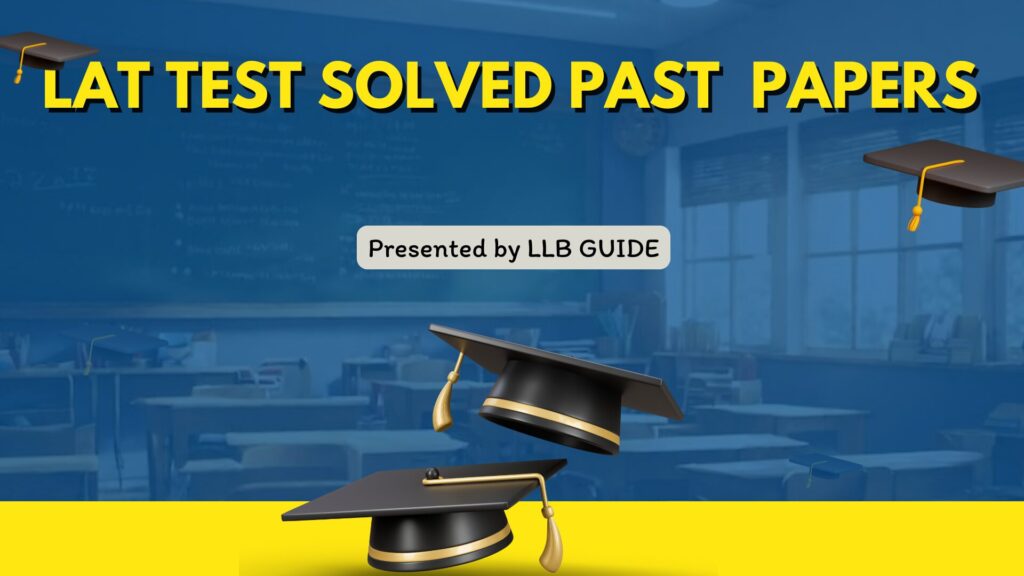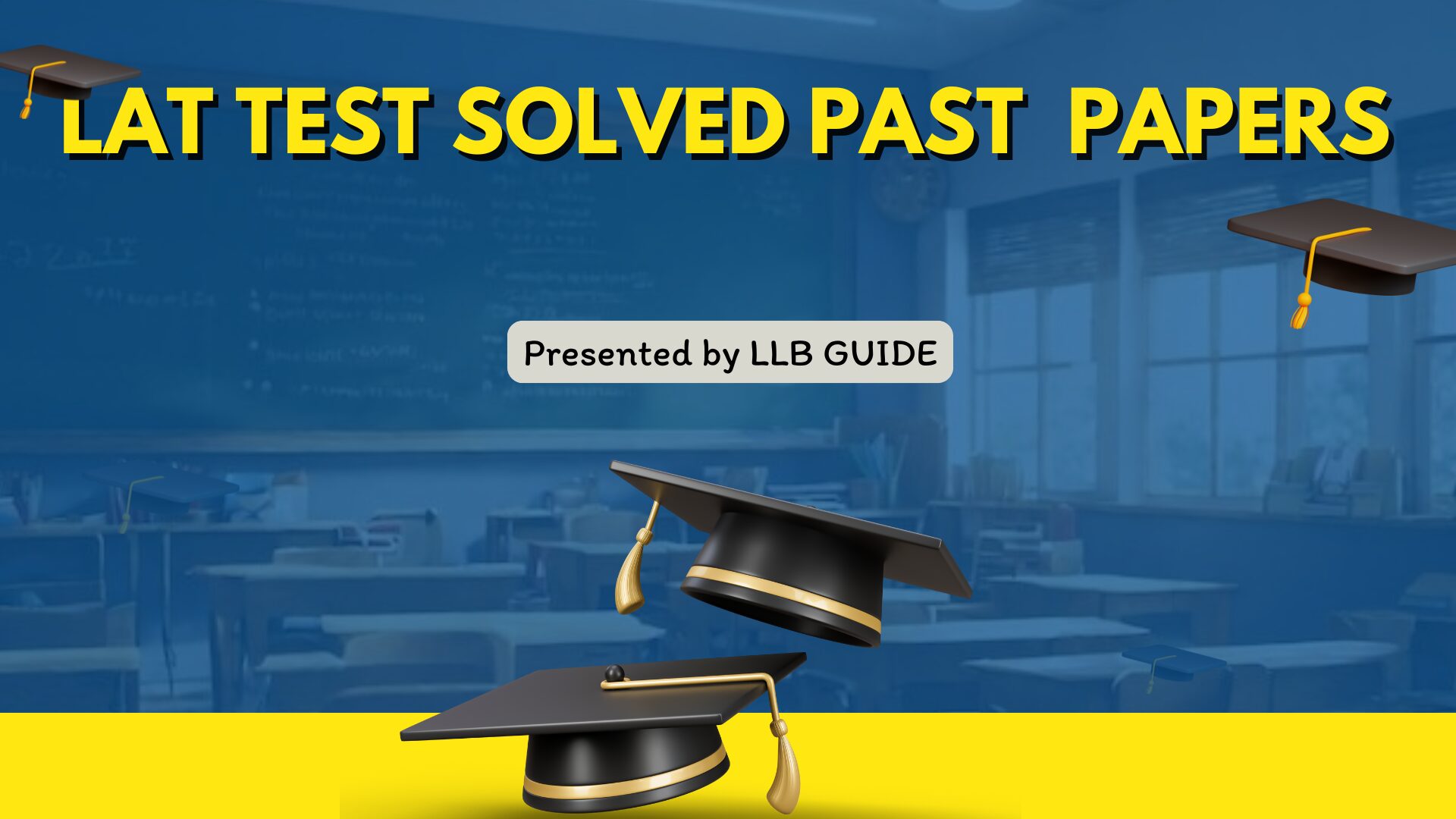The Higher Education Commission (HEC) of Pakistan administers the Law Admission Test (LAT), which is a prerequisite for enrollment in five-year LLB programs. It assesses a student’s aptitude for legal studies and is a crucial component of the selection process. Lat Test Solved past papers are one of the best resources for preparing for the LAT, which calls for a calculated approach and constant work. These test questions provide important information on the structure, degree of difficulty, and nature of prior exam problems.

Why Solved Past Papers Matter
Rehearsing for the final performance is similar to practicing previous papers. This is why they are important:
Recognize the Structure of the Test: The LAT is broken up by several areas, such as Essay, General Knowledge, Islamic Studies, Urdu, English, and Legal Reasoning. Students can better grasp the format and expectations of questions by using solved previous papers.
Real-Time Practice: Accuracy and speed are increased by answering actual questions in a timed environment. Additionally, it teaches you how to handle stress during the test itself.
Identify Recurring Questions: Some question types have a tendency to recur or exhibit comparable trends. You can spot these trends by using your previous paper experience.
Self-Assessment: Students can evaluate their present level of readiness, pinpoint their areas of weakness, and make the necessary improvements with the help of the solved answers.
What’s Included in LAT Solved Past Papers?
The following sections are present in the majority of high-quality solved papers:
MCQs: From General Knowledge, Islamic & Pakistan Studies, English Grammar, and Urdu Vocabulary.
Samples of essays and personal statements: These provide pupils with a useful understanding of how to write in an official, well-organized, and striking way.
Legal Reasoning Questions: These assess reasoning skills and knowledge of the law with thorough justifications.
Answer Keys and Justifications: A lot of solved papers provide explanations that make it easier to see why a certain choice is right.
Download Solved LAT Past Papers (PDF)
Click the links below to download solved papers in PDF format:
- 📄 LAT 2022 Solved Paper – PDF
- 📄 LAT 2023 Solved Paper – PDF
- 📄 LAT 2024 Solved Paper – PDF
- 📄 LAT Sample Paper with Answers
How to Use Solved Past Papers Effectively
To get the most benefit from past papers, follow these preparation tips:
- Attempt Before Checking Answers: Try solving each paper without looking at the solutions. Then, match your answers and identify mistakes.
- Time Yourself: Always use a timer to replicate the actual exam conditions.
- Analyze Mistakes: Don’t just mark wrong answers — understand why you got them wrong.
- Repeat Regularly: Practice makes perfect. Attempt at least one full paper every week.
- Supplement with Conceptual Study: Use past paper questions to revise the theory, especially in English and Legal Reasoning.
Common FAQs About LAT Solved Papers
Q1: Are past paper questions repeated in the LAT exam?
While exact questions rarely repeat, the style and difficulty level are often similar. Practicing past papers builds familiarity and confidence.
Q2: Can I rely only on past papers to pass the LAT?
Past papers are a powerful tool, but combine them with basic study materials, grammar practice, and current affairs reading for the best results.
Q3: Where can I find reliable solved papers?
You can download PDFs from trusted educational websites or purchase books from reputed publishers like Dogar or Caravan. We’ve also listed free downloadable PDFs above.
Conclusion
Preparing for the LAT test doesn’t have to be stressful if you use the right resources. Solved past papers are a shortcut to understanding the exam’s structure, improving performance, and boosting your chances of success. They allow you to work smart — not just hard.
Whether you’re aiming to improve your grammar, sharpen your logical thinking, or simply get comfortable with the test layout, practicing solved LAT papers is a must. So download them, make a study plan, and stay consistent — your LLB dream is just a few steps away!

